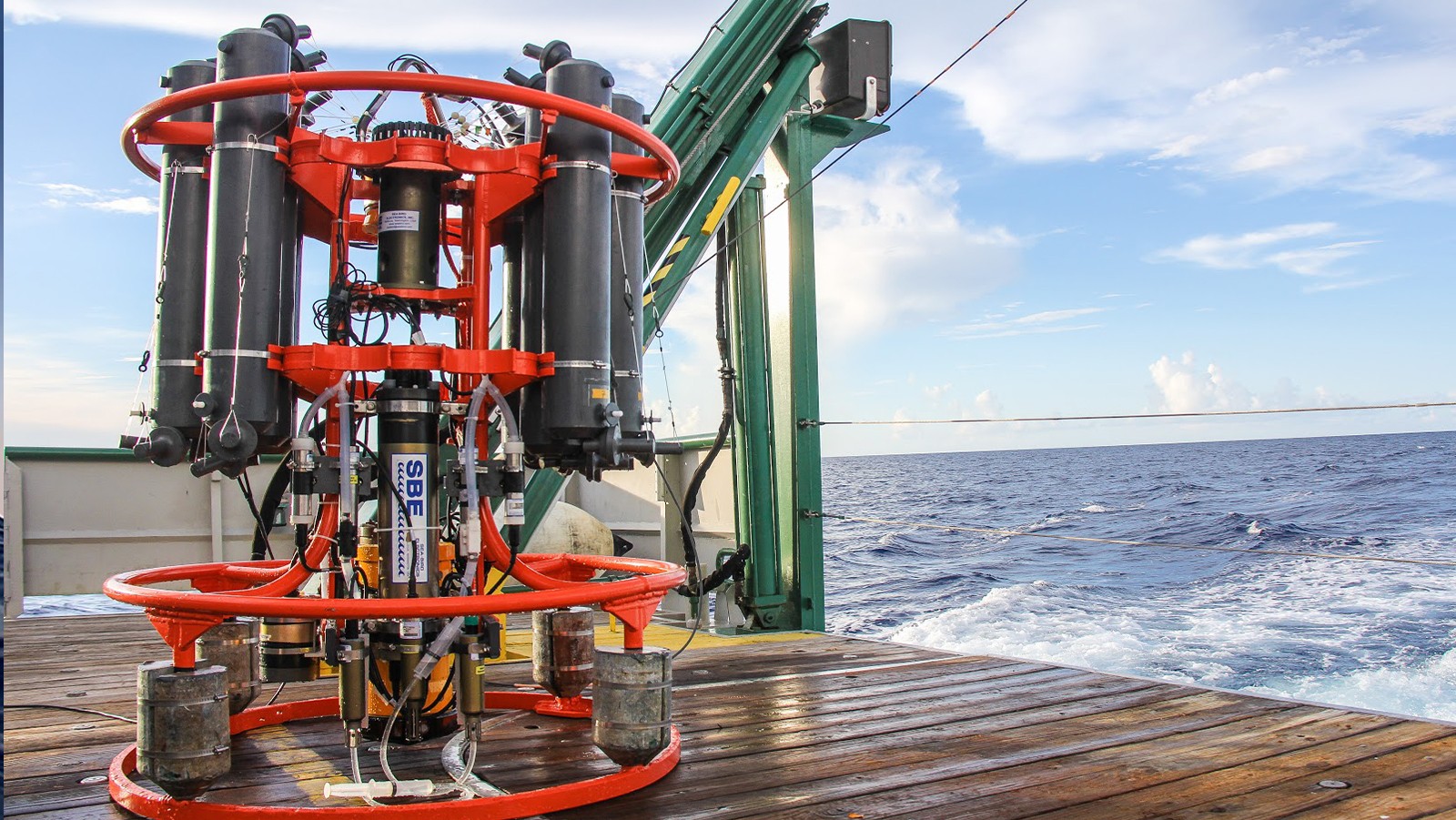NOAA’s Western Boundary Time Series (WBTS) project, alongside partner projects RAPID and MOCHA, have been awarded the inaugural “Ocean Observing Team Award” by The Oceanography Society. This award recognizes innovation and excellence in sustained ocean observing for scientific and practical applications. The WBTS/RAPID/MOCHA team is recognized for significantly improving our understanding of Atlantic circulation through the breakthrough design of a basin-wide observing system using endpoint measurements to measure the variability of the overturning circulation across wide areas of the ocean. This design provided continuous, cost-effective measurements that led to a transformation in ocean observing and advances in scientific knowledge.
The WBTS/ RAPID/ MOCHA project is a collaborative research project between NOAA’s Atlantic Oceanographic and Meteorological Laboratory, the University of Miami’s Rosenstiel School of Marine and Atmospheric Science, and National Oceanography Centre that measures the Meridional Overturning Circulation (MOC) and ocean heat transport in the North Atlantic Ocean.
A large team of researchers at AOML have been involved in the WBTS project over the years and were critical to the program receiving this award.
The MOC is one of the main components of ocean circulation, which constantly moves heat, salt, carbon, and nutrients throughout the global oceans. Variations of the MOC have important impacts on many global scale climate phenomena such as sea level changes, extreme weather, and precipitation patterns.
The award selection committee noted the international team has sustained a core array of moorings across the Atlantic at 26N for more than 16 years, monitoring changes in the rate of the Atlantic MOC. The team has shown that previous attempts from ship-based cruises to define trends in the Atlantic MOC were biased due to errors accompanied by the highly variable system. Consequently, the WBTS/RAPID/MOCHA team transformed their approach to ocean data acquisition toward more targeted continuous high-resolution in-situ measurements.
The award also noted several scientific advances that have been made directly due to the WBTS/RAPID/MOCHA project. The project found that the Atlantic MOC varies on timescales of days to a decade, rather than decades to centuries as previously assumed, and that wind-forcing (rather than buoyancy forcing) plays a dominant role in Atlantic MOC rates.
The WBTS/RAPID/MOCHA project has transformed the observational approach for measuring large-scale ocean circulation. The project has demonstrated how to build an ongoing international collaboration to work on a critical climate problem, has made data freely available, includes students and early career professionals, and has openly supported interdisciplinary efforts resulting in partnerships with engineers, biogeochemists, and climate modelers.
